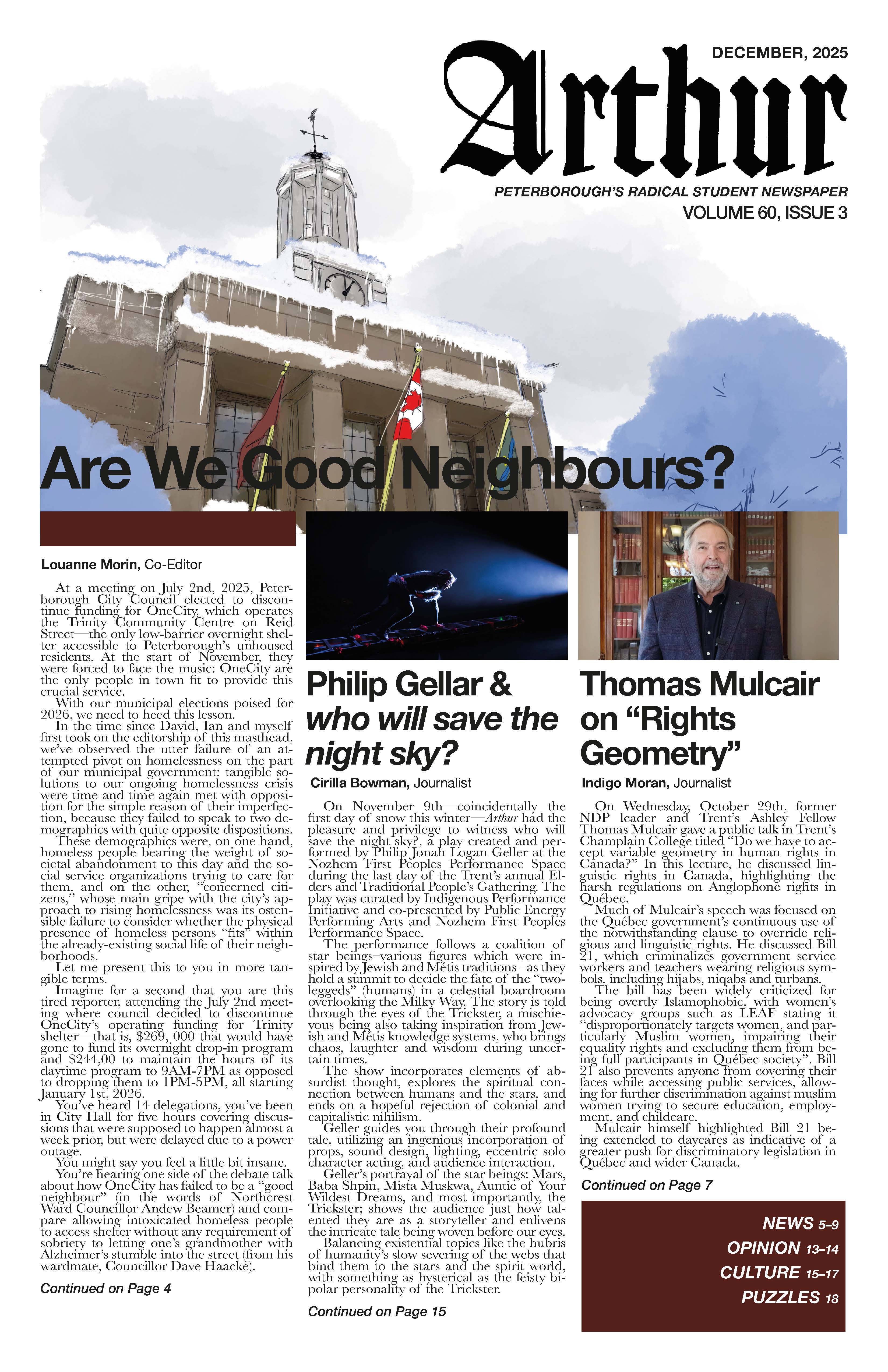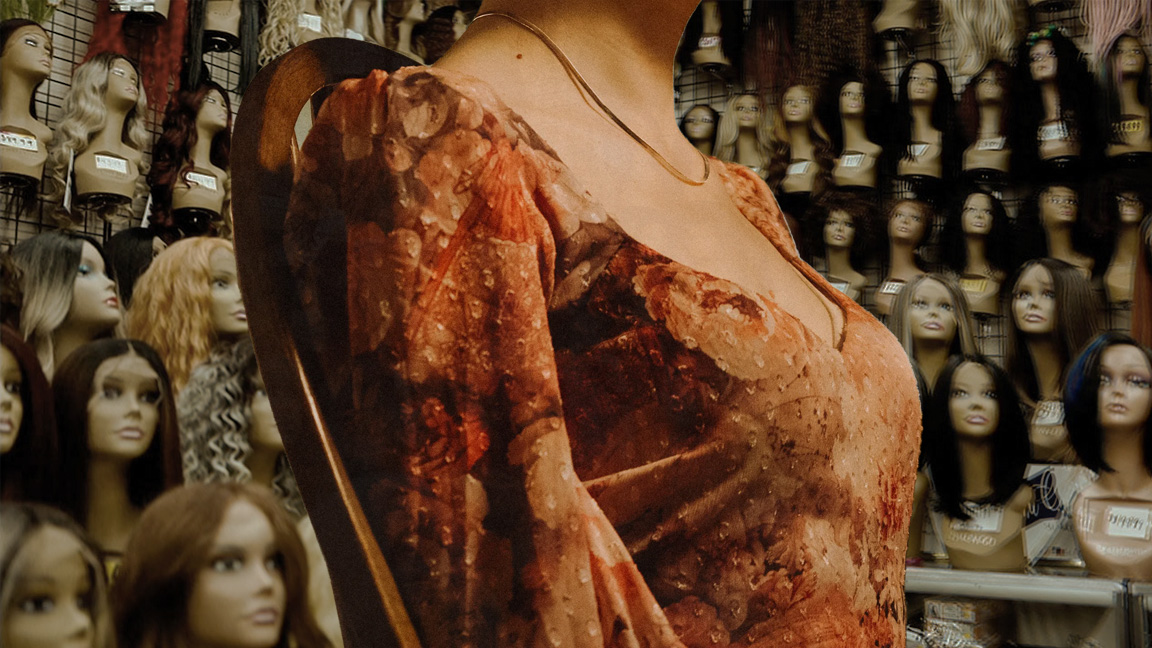At the end of August, hot off the heels of a court date, I got an unexpected call from my surgeon. It was the last thing on my mind at that particular moment, seeing as I was still reeling from a month-long anxious spell leading up to my first appearance in Provincial Offences Court. Instead of relief, the residual fear and paranoia renewed itself with a quick voicemail from an intake nurse at a surgery clinic in Montreal. She claimed to be responsible for finishing my pre-operative evaluation. I immediately called back.
The nurse greeted me with a “bonjour-hi” before getting to business. She told me about the status of my file, which had taken over a year to process, and how I’d get a date in three weeks after I sent in a little more paperwork.
Three weeks later, she called me again.
“I’m booking dates in November and December,” the intake nurse said in halting English.
“Next year?” I asked. I’d grown accustomed to waiting around.
“No,” she replied dryly. “This year.”
I picked the closest possible date, then hung up. After years and years of trying, I was dumbstruck with the end being so near.
In the paperwork for my double mastectomy, my primary referral states the following: “David was approved for gender-affirming top surgery three years ago and was referred to your clinic, but was not sober at the time and states he was unable to manage … the pre-work associated with having surgery, so he did not pursue it at the time.”
I’ve enjoyed an extremely messy transition for someone under 30. In the six years of my medical transition, I solicited multiple surgeons but was not lucid enough to follow through on compiling my entire medical history. I almost drank myself to death during this time, which did NOT help me get any paperwork done.
Shocking, I know!
After I sobered up, I got the ball rolling again on my boob job, and completed the necessary work to secure a consultation. The pre-operative package you’re supposed to send off includes a letter of referral, which effectively details a sob story to the Medical Establishment.
Honestly, I'm not fond of how I’m framed in this document. This is not the direct fault of any involved party, but simply a part of our healthcare system that I fucking despise. My primary caregiver and I met extensively to discuss how my case needed to fit a certain framework for the Province of Ontario to fund an out-of-province procedure. She profusely apologized for the multitude of intrusions, especially during the more egregious questions about my sex life. I now understand why she would write a line, turn to me, and blurt out a quick apology before returning to her notetaking.
Still, I can’t help but bad-mouth the medicalization of transition. This process flattens my desire for physical liberation—especially after years of relentless psychological discomfort—into a mere gesture of affirmation. It boils down the lifelong barrage of emotional turmoil into clean, sterile one-liners, hitting all the necessary points for some faceless clerk at the Ministry of Health to nod along to.
My referral also states that I “wish to be seen as a cisgender male.” This line DEEPLY unsettled me when I first read it. Sure, now and again, I enjoy the luxury of passing when I grow out my facial hair, yet somehow have always felt alienated from being perceived as fully “male” or “cisgender.” I would never make this concession willingly, seeing as I take great pride in being a transsexual loudmouth. I wouldn’t even say this at gunpoint, for Christ’s sake!
This intentional distortion frames my transition not as a radical embodiment and a point of intervention, but as a means of assimilation, a man coming into a man’s world. The net effect of everything I’ve done—bad haircuts, baggy t-shirts, binding my chest, hormone therapy—becomes amassed into a platitude that doesn’t reflect the full spectrum of my feelings and beliefs.
I’m hyperaware of my proximity to cissexuality, as any self-respecting transsexual should be. The Western approach of disease and disorder-based care drastically affects how we view acts of medicalized transition. This framework indicates that transition is fundamentally tied to a diagnosis of gender dysphoria, which is identified as a disorder by the DSM-V and entails extensive treatment according to protocol outlined by the World Professional Association for Transgender Health (WPATH).
WPATH has comprehensive standards of care, but falls short when incorporated into the current deployment of Canadian healthcare. Our system severely lacks the patient-centric and holistic approach WPATH standards outline for maximum effectiveness. Most people (including me!) don’t see a doctor regularly, and most people’s transitions (including me!) are monitored in a laissez-faire manner. This issue is not solely related to transitions, as all medical practices in Canada seem to adhere to this odd reasoning, but it becomes especially ridiculous when it intersects with the moral panic that transgender Canadians are at the near-centre of.
I’ve encountered this regime of transness as a disease numerous times as I’ve navigated various medical events in my life, yet this view has become even more prevalent in the period preceding my surgery. This carries through when people imply that my mastectomy is an act of mutilation. Loved ones and relatives have told me that I am mutilating myself, and cast doubt on my sober-minded judgement.
Unfortunately, I would be lying if I said I didn’t have my doubts.
As the date draws closer and closer, it’s difficult to admit that I find myself shutting down at the thought of my surgery. I am deeply anxious about my relationship to my body changing, and what my body will look like, because I’m supposed to be happy that this is happening. I didn’t know I’d be so profoundly affected by such a simple procedure.
Here, I’m first going to blame a cisgendered social attitude around affirming surgeries. The way trans people are supposed to feel is either grateful or disaffected, which doesn’t account for the massive grey area between these extremes. This doesn’t allow trans people to fully express frustration or criticism without seeming ungrateful or keen to detransition.
Medical transition is currently a privilege, and it shouldn’t be. It’s a reward for understanding and conceding to an uncaring medical bureaucracy, all occurring while our healthcare system—and access to gender-affirming care—backslides every time the ruling party changes faces. However, there’s sparse real estate in public discussions of surgical care to explore the emotional landscape of such a daunting life event, tied so intrinsically to the collective pursuit of a better self. I’m fucking terrified, regardless of if I’ve wanted this for most of my adult life.
Ever since I began to go through puberty, I became deeply disturbed by what my body was capable of inflicting on me, but I will never regret the things I’ve done to rectify this. I have the utmost confidence in my judgement on transition-related decisions, and I don’t claim that certainty of much else in my life.
In the hours and hours of research I anxiously conducted before my surgery, nothing could’ve prepared me for the realization that I'll miss my boobs. This is the first time I’ve externalized this thought, but I think I’m frightened of the lack of control I have over how my body will change. The funny thing is that I’ve never had control of this, but when I finally act upon something that asserts it, I baulk.
I admit I have more work to do in accepting what is happening to me. I’ve grown accustomed to the discomfort of my living, and to have that alleviated—even slightly—stirs emotions I never anticipated having. I’ve let go of numerous things in this rodeo of a life, but I didn’t expect to keep holding onto this big-tittyed bull for as long as I have.
So! This next part is just for you.
My gargantuan bazonkers. My honkers. My girls. I never wanted you two around, but by God, we’ve had some great times together. I will miss sitting naked on my bed, hunched over like an orangutan. I’ll miss the instances when we’re alone in the bathroom after a shower, looking especially voluptuous in a fogged mirror. I’ll miss the weird patches of chest hair you sprouted after two years of testosterone, and how one of you is absolutely bigger than the other.
You are sisters, but not twins. You are big and beautiful, and I wouldn’t change how I met you for the world. You made me cooler, sluttier, and fatter. I love you, my delicious breasts, and I’m almost sorry you have to be excised from my chest. By the time you read this, you will cast to the depths of a hazardous waste container. It’s the fate you deserve, despite my sentimentality towards you. I’m grateful for everything you’ve put me through.
I won’t miss how you look in shirts. I will NOT miss binders and how you freaks would poke out of the sides, among other complaints. We’re not getting a breast reduction for these exact reasons, and it’s safe to say I’ve carried you far enough.
Be free, my breasts! You’re going to Huge Jugs Heaven now.


.png)


.jpg)


.jpeg)



.jpg)


.jpg)









.png)